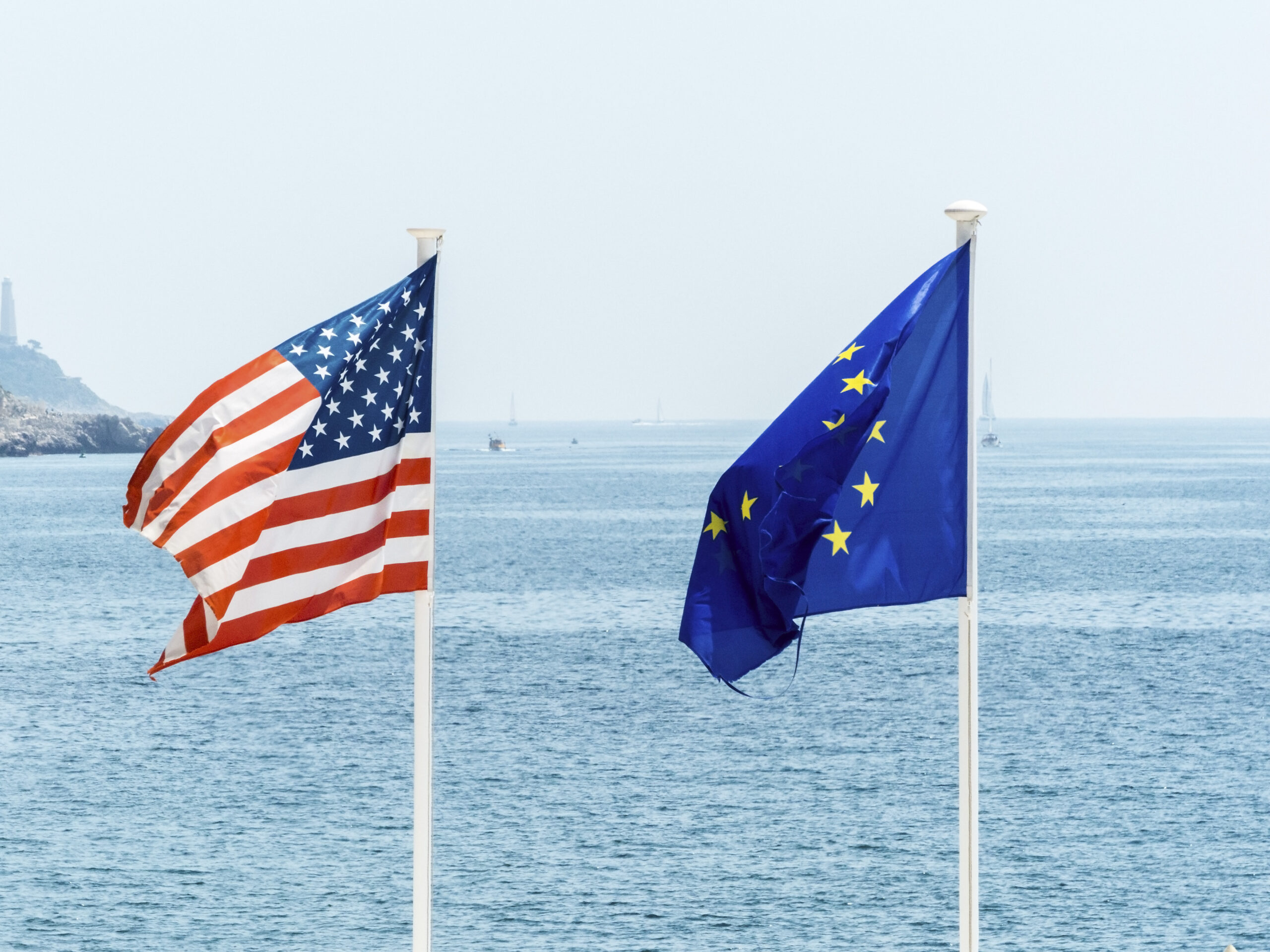 By Giovanni Goio, Niccolò Simoncini
By Giovanni Goio, Niccolò Simoncini
Despite EU officials cheered up when Donald Trump has declared defeated after the American election day, they are aware that a change of tenant at the White House will not be sufficient to restore the transatlantic alliance. In the past four years, the EU was repeatedly hurt by the US’s unilateral approach to international affairs, with Mr. Trump menacing economic tariffs and military disengagement. Allegations and threats have caused a sentiment of mistrust in the Old Continent, which may jeopardize the expectations of the US’s role as a global leader in the long term.
The last electoral campaign and the elections in the US were followed with eager interest in the European Union. Our media and our Instagram feeds were filled with news and updates about the candidates’ speeches and programs, testifying the importance European leaders and people gave to its results. However, a survey commissioned by the European Council on Foreign Relations reveals that most Europeans are skeptical about a future comeback as a global leader: they think China will become more powerful than the US within the next ten years. Moreover, after four years of Trump’s presidency, most of them lack trust in the American political system, are considered weak, and suffering from a deep crisis.
A concrete step towards reconciliation was Biden’s participation in the European Council in March at a diplomatic level. The last time an American president joined EU leaders in their periodic meetings was 11 years ago, during the first Obama administration. The virtual summit was a symbolic event and a real opportunity to discuss shared interests and concerns, trying to get the bilateral relationship back on track. It will not be so easy.
DelUSions of grandeur
While the Trumpian “America first” represented a unilateral approach based on the complete satisfaction of the US’ interests, without proper consultation with other partners, the new democratic administration aims to go back to a multilateral approach. The actual cause behind this new strategy is the awareness that America alone cannot solve the most challenging international issues. Managing an economic competition with China and a diplomatic confrontation with Russia is almost impossible, requiring friends and allies to work with. To do so, Biden needs to build a constructive dialogue with the historical partners, both European and Asian, to make them part of a shared design, and the European Council of 25-26th March is the first step of this process. Even though official meeting reports did not mention anything about the topics covered, we suppose that common issues (relations with China and Russia, climate change, and international standards and regulations on online data and e-companies) have been discussed.
On the 2nd December 2020, the European Commission and the High Representative of the Union for Foreign Affairs and Security Policy published a joint communication to the European Parliament, the European Council, and the Council, entitled “A new EU-US agenda for global change.” This communication shows the European point of view about the desirable relations between the Union and the US after Biden’s election. Moreover, it points out the most challenging issues of the contemporary world, which should be addressed through multilateral cooperation. Indeed, climate change and digital issues are considered the top priority challenges to be discussed with the US and defense of democracy. “The EU and the US share history, values, and interests, and their combined global power and influence remains unrivaled. The recent change of administration in the US is a chance to work together, setting a new transatlantic agenda for global change in order to shape the post-corona world”.
Diverging opinions seem to emerge from the e-data issue. While the EU seems willing to impose a standard taxation system on e-companies within its borders, the US is lobbying for a solution that does not harm Silicon Valley big corporations. Furthermore, discussions on Russia appear to be tricky, considering that not even EU countries managed to find a shared strategy to deal with the Kremlin. Let us now see the perspective on the two top-priority issues: climate change and relations with China. Fighting climate change is considered in the Union as the most defining challenge of our time. The goal of the Union is very ambitious: the European Green Deal aims to reach carbon neutrality by 2050.
The president of the Commission, Ursula Von der Leyen, declared that this achievement would be like our Moon Landing, as Europe would become the first continent not producing any carbon dioxide emissions. However, if the EU does the race alone, arriving first cannot be considered as a victory.
As great as it would be, this would be far from sufficient: climate change is a global challenge requiring practical global cooperation. Biden’s willingness to re-join the Paris Agreement is thus warmly welcomed by the European Union, which hopes for a shared transatlantic commitment to a net-zero pathway by 2050. Finally, the EU and the US should lead the whole world in this direction through a multilateral cooperation approach.
“America is back” … However, China is forward.
Biden announced that “America is back” and that he will fight decisively the Chinese attempt to rival the American global leadership. The rising tensions between these superpowers undermine the possibilities for global cooperation. If they escalated further in the future, there would not even be the premises for a dialogue. The struggle to keep, or get back, a hegemonic position by the US can be considered in the interests of the European Union?
In December 2020, after seven years of negotiations, the EU and China agreed in principle about the Comprehensive Agreement on Investment, which would significantly open up the Chinese internal market to EU companies. In 2020, China became the first commercial partner of the European Union, overtaking the US. “For the EU, China is a negotiating partner for cooperation, an economic competitor, and a systemic rival.” For the US, the order of these adjectives is likely upside down. “The EU and the US agree on the strategic challenge presented by China’s growing international assertiveness, even if we do not always agree on the best way to address this,” concludes the joint communication. European countries’ most influencing leaders think that the EU should not form an anti-Chinese block with the US. The EU should be more and more an independent player capable of forming its own China policy to pursue its interests. “It is not just about economic interests, but also about living up to what we also call European sovereignty,” according to Angela Merkel. “That means that we have a common foundation of values with the United States of America, of course, that is completely unquestioned and clear, but we also have our interests on the other side.”
Without detracting from the affinity with the US, a significant media coverage -and, consequently, more interest from the public opinion- in the EU about Chinese speeches would be appropriate. It would help avoid divisions between blocks, as well as enhancing the chances for global multilateralism. Two months ago, American and Chinese delegations had the first meeting since Biden’s election, marked by apparent tensions. When two superpowers fight, the third one may gain by getting in between them: the UE could try to overcome the divisions by pointing out everybody’s shared interests. As the joint communication states, “a united, capable and self-reliant EU is good for Europe, good for the transatlantic partnership and good for the multilateral system.” This seems the path to be followed.


